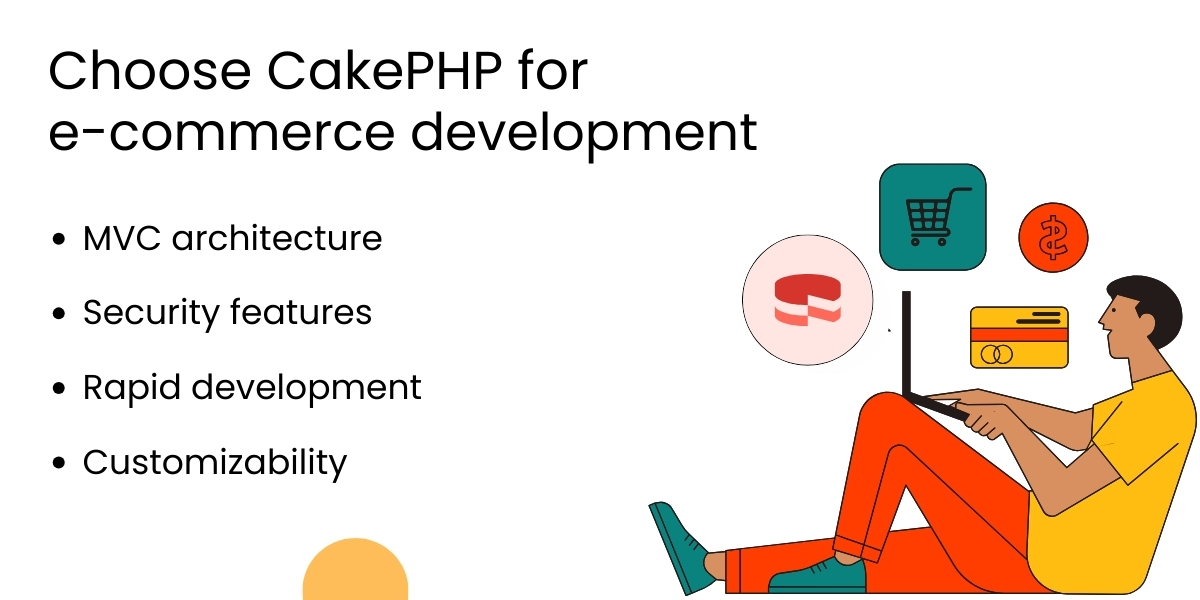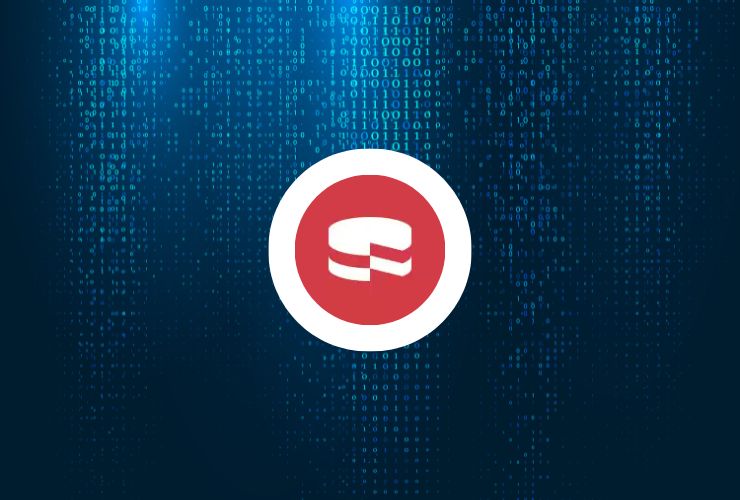In the current digital marketplace, a reliable, secure, and scalable e-commerce platform is vital to your business success. Rapidly changing customer expectations and increased competition have compelled brands to operate in a digital framework that supports in-home or online development without sacrificing performance or security.
CakePHP is one of the leading open-source PHP frameworks that provides developers with a solid base to develop high-performing, flexible, and secure e-commerce websites. CakePHP’s specialty comes in when developing small online boutiques or full-fledged enterprise-level stores. CakePHP makes this process simple and scalable for the future.
1. Why Choose CakePHP e-commerce development?
Because of its simplicity, structure, and scalability, CakePHP is easily one of the most favorable tools. CakePHP is built on the Model-View-Controller (MVC) architectural pattern, which provides developers with the ability to separate logic, design, and data handling. This improves the organization and maintenance of code.
Why Choose CakePHP for E-Commerce Development:
- MVC architecture: Better arrangement of the application for cleaner, maintainable code.
- Security features: Built-in protection from SQL injection, XSS, CSRF, and form tampering, by default.
- Rapid development: Less time on development and more time on building products based on pre-built components, scaffolding, and reusable libraries.
- Customizability: Easily integrate custom features, APIs, and third party tools.
2. Essential Elements for E-Commerce Websites
CakePHP is a comprehensive framework providing all features needed to enable a complete e-commerce solution.
a. User Management
- Allow customers to register, login, and review their profile.
- Admin roles, and dashboards specific to vendors, are also supported.
- Manage site-wide access using role-based permissions for security.
b. Product Management
- Add, edit, and manage products easily.
- Products can be categorized using categories, brands, or collections.
- Users can upload images, filter, and search to improve their experience.
c. Shopping Cart and Checkout
- A seamless shopping experience complete with live cart updates, allow followers to shop like they do in person.
- Secure payment gateways, including PayPal, Stripe, Razorpay, and others will be able to be integrated as plugins.
- Discount codes, gift cards, and multi-currency can also be used.
d. Order and Inventory Management
- Track orders, shipping, and returns with automated order tracking and updates.
- Stock levels are manageable with stock notifications when inventory is low.
- Sales and fulfillment reporting are generating reporting based on number of sales.
e. URLs Friendly for SEO
- CakePHP has a flexible routing architecture enabling clean and SEO friendly URLs, making it much more visible when using search engines.
- Adding meta data, schema tags, and keyword rich URLs becomes easy as well.
3. Benefits of CakePHP for Online Stores Faster Development
The scaffolding and pre-existing components of CakePHP makes development quicker thereby getting your store to launch quickly. Security
- CakePHP has built-in security against known attacks keeping customer and payment data safe for your online store’s most important asset. Customization
- CakePHP lends itself well to whatever level of customization you’d like. You can develop a completely different e-commerce experience, including any APIs you want to create shipping, analytics, or CRM capabilities. Maintainable and Scaleable Code
- The code is very maintainable and uses a MVC architecture, so in the event of growth in your business, it will be easy to scale. References and Experience
- Since CakePHP is open-source and it’s community is vast, you will quickly find better ways to build performance e-commerce websites through plugins and getting updates.
4. CakePHP Best Practicies for your e-commerce site
You will want to make the best of CakePHP in terms of generating an e-commerce environment by keeping in suggested best practices.
- Plugins: Use CakePHP plugins to enhance payments, SEO, caching, and/or analytics.
- Optimize databases: Utilize index on tables and optimize your queries so that your pages load faster.
- Caching: Caching (File, Redis, Memcached) is part of CakePHP, therefore leverage their caching mechanisms to speed up response times.
- Mobile Responsive: Make sure that your e-commerce website is mobile responsive.
- Stay up-to-date: Keep CakePHP and your extensions current to prevent any security issues.
5. CakePHP’s Real-World Applications in E-Commerce
- Fashion & retail brands: Manage seasonal catalogs, promotions, and customer loyalty programs.
- B2B platforms: Manage bulk orders, customized pricing, and complex workflows.
- Digital product stores: Provide instant downloads and license management.
- Food delivery services: Manage a high volume of transactions to allow for real-time order tracking.
6. Integration Capabilities
CakePHP provides seamless integrations with essential e-commerce tools and third-party services, such as:
- Payment gateways: PayPal, Stripe, Razorpay, Authorize.Net
- Shipping APIs: FedEx, Shiprocket, UPS
- CRM and ERP systems: Salesforce, HubSpot, or Zoho
- Marketing tools: Google Analytics, Mailchimp, and social media platforms.
Because of this flexibility, CakePHP is scalable for both start-ups and large ecommerce projects.
Conclusion
CakePHP remains a robust, secure and flexible framework to build scalable e-commerce websites. It offers the benefots of the MVC architecture plus built-in security and discrepancy for customization, making it a premier choice for businesses in need of performance and reliability.
Utilizing best practices and CakePHP capabilities enables developers to deliver online stores to drive conversions nd customer satisfaction.
As companies are looking to establish or expand their digital presence, CakePHP is more than a framework; it is a solid foundation for sustainable e-commerce growth.
Unlock seamless online selling with CakePHP — build secure, scalable e-commerce solutions tailored to your business goals.
Frequently Asked Questions
CakePHP’s MVC architecture, built-in security features, rapid development components, and flexibility make it ideal for building secure and scalable e-commerce websites.
Yes — CakePHP supports secure payment gateway integrations like PayPal, Stripe, and Razorpay, along with built-in protections against SQL injection, XSS, and CSRF attacks.
CakePHP allows detailed product cataloging, category filtering, stock tracking, order tracking, and automated inventory updates needed in e-commerce stores.
Yes — CakePHP’s routing system enables clean, SEO-friendly URLs and easy management of metadata to boost search visibility.
Absolutely — CakePHP supports custom themes, plugins, and third-party integrations, allowing tailored features like discounts, multi-currency, advanced search, and CRM systems.










